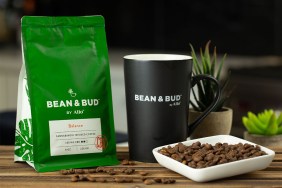Café culture is the common denominator between friends catching up on old times, business deals struck with a strong handshake, or a simple moment of decompression during a cigarette break at lunch here in the EU. And the importance of a refined cup of coffee is something curators of luxury coffee have remarked with growing intensity: How do we improve on the coffee bean? Well, the more delicately rendered the bean the more exotic the cup becomes.
Enter two exceedingly exotic forms of coffee so rich in flavor and equally in price, you may be lucky just to be in the presence of anyone drinking such a cup. One comes from the excrement of a civet cat. The other comes filtered through a strain of elephant dung. What’s the bridge between the two very richly steeped brews? Poop.

Kopi Luwak Coffee. Photo courtesy of Kopi Bubuk.
And we don’t mean that crudely. God forbid someone ever says you don’t know s— about coffee. They could be referencing two of the most expensive cups of ristretto you’ll find on the market. Kopi Luwak or “cat” coffee is conjured by collecting the droppings of an Indonesian species of civet cat called the luwak. The luwak stalks the local coffee plantations at night, feeding on the most succulent of coffee cherries. And what it cannot digest of that nocturnal meal, the coffee beans, it excretes.
Coffee farmers collect those beans and produce Kopi Luwak which sells for a hefty fee. As prices go, imagine the choicest of caviar…in a cup: between $200 – $400 per kilogram. And while the taste is reputed to be pure heaven and unparallelled, the Kopi Luwak industry has exploded in Indonesia and neighboring countries. The combination of rare exoticism and sheer bizarre curiosity over such a brew has now been dwarfed by the unimaginable profits farmers are making from harvesting the coffee from caged luwaks.

A woman collects elephant dung for coffee. Photo courtesy of Associated Press.
And given the delicate nature of the ecosystem and the cruel conditions visited upon the rare creature, other farmers have looked to other forms of coffee raised from poo. That would lead to possibly an even more expensive form of coffee: coffee from elephant dung. Much like the luwak defecates coffee beans it eats, elephants are fed coffee beans and later pass them through their digestive system to their eventual excretion.
Thailand has taken on board the exotic fooding trend as an even richer alternative to Kopi Luwak. Brewers claim the elephant’s digestive track cultivates a smooth gentle taste suitable for delicate palates. And a bag of said coffee can sell upwards of thousands of dollars at elite supermarkets like Harrod’s.

Kopi Luwak coffee. Photo courtesy of Cafe Tommy.
But just like Kopi Luwak, elephant dung coffee raises ethical questions about animal cruelty and environmental sustainability. Are perfectly harvested brews and animal cruelty mutually exclusive? The environmental community seems to think so. Is one $2000 bag of “crap” coffee really worth the potential impact it exacts on the animal kingdom, much less the carbon footprint the cluster of crap coffee farms sprouting up everywhere leaves behind? If you’re keen to shell out thousands for a bag, then you’re probably leaning towards answering no.








